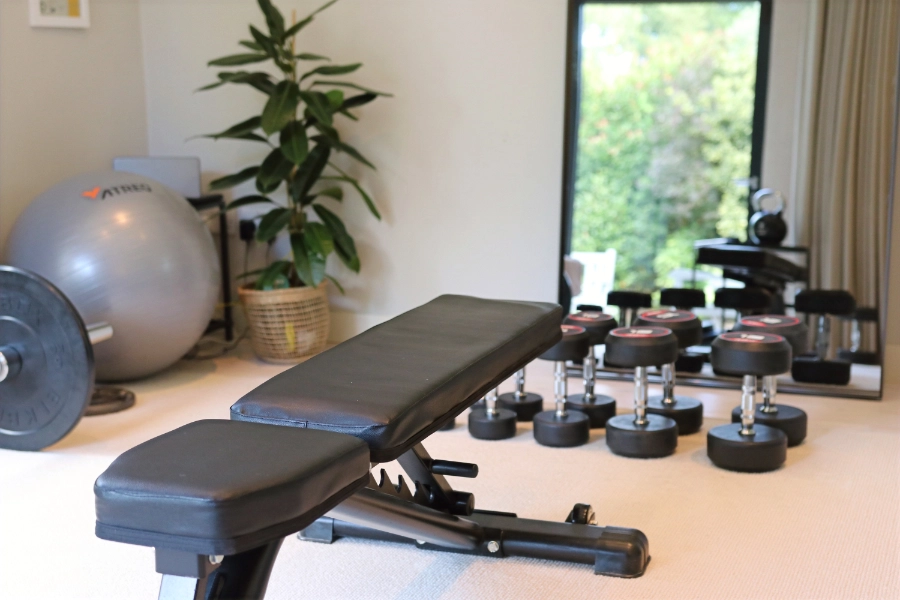Numerous studies have shown that resistance training can help combat the effects of ageing. Here are ten important benefits of adding resistance training to your routine:
1: Resistance training builds muscle
You can lose up to 40% of your muscle mass between your 20s and your 80s, it’s a natural part of ageing. Although we can start losing muscle from our 20s, this loss typically speeds up once we hit our 60s. And to make things worse while we lose muscle mass, we simultaneously gain fat mass, and see a big drop in strength too!
Resistance training slows or can even reverse this muscle loss, making you stronger, more agile and mobile.
2: Increased muscular strength
By consistently completing resistance training exercises, you will see improvements in strength. This will give you a boost in all areas of your life.
3: Improved mental health
The mental health benefits of resistance training for adults include improvements in fatigue, reduced anxiety and depression, and improvements in cognitive ability, especially in older adults. It has been linked to improved self-esteem and pain alleviation in people with osteoarthritis, fibromyalgia and lower back issues.
4: Reduced body fat
The question on everyone’s lips: do you lose weight with resistance training? Well, with respect to abdominal fat, research published in the Journal of Applied Physiology revealed significant reductions in abdominal fat resulting from resistance training in older men. Another study published by Sports Medicine (Auckland, N.Z.) mentioned that the mechanism for this reduction in abdominal fat was the result of:
- an increased resting metabolic rate – an increase in how much energy we burn at rest
- improved insulin sensitivity – this effects how we process glucose and turn it to energy
- enhanced sympathetic activity – this can cause an increase in heart rate
The main driver of weight loss is an energy deficit, however adding resistance training to your programme could support your weight loss goals for the reasons above.
5: Muscle retention during weight loss
During weight loss, it’s important to hang onto the precious muscle we’ve worked hard to build, and resistance training can help you do exactly that when lowering your calorie intake. According to a review published in the Journal of Advanced Nutrition several studies have found that a progressive resistance training programme when in a calorie deficit reduced the weight-loss associated loss of muscle mass. Adding new meaning to the phrase ‘use it or lose it’.
6: Prevention of age-related muscle loss and illnesses
A particular problem affecting those who are getting older is sarcopenia. ‘Sarcopenia (muscle loss), can begin as early as 40 years old. It can be more prevalent with a lack of resistance training and other factors. Our muscles are vitally important in maintaining our hormonal, glucose and inflammatory levels. Without muscles, or even with a lack of muscle mass, our system can begin to decline, and various pathologies can follow. This can have a serious impact on our health and contribute to things such as cardiovascular disease, type 2 diabetes and even dementia.’
7: Improved bone density
Resistance training could benefit your bone density. The effect of resistance training on bones is a great example of the benefits it can have on our bodies. It appears to provide the greatest osteogenic effect (increase in bone mineral density). Because it is living tissue, it has the ability to remodel and adapt to the mechanical stress from resistance training, thus reducing the risk of osteoporosis.
8: Injury prevention and support
While research on the direct effect of resistance training on injury rate is limited, ‘the physiological adaptations to bone, muscle, tendons and ligaments of those individuals who participate in resistance training compared to those who don’t’ can’t be debated. Available studies report an increase in the size and strength of both tendons and ligaments.
Resistance training can also be beneficial during rehabilitation of injuries. ‘When we get injured, our bodies can become rewired and almost accustomed to certain positions being ‘painful’. So it’s important to re-educate our bodies that these positions are ‘okay’ to move into. This is where resistance training is hugely beneficial.
9: Improved cardiovascular health
A 2011 literature review published by the Journal of Obesity concluded that, ‘resistance training is at least as effective as aerobic endurance training in reducing some major cardiovascular disease risk factors’. The findings related to cardiovascular benefits of resistance training included:
- Improved body composition
- Mobilisation of abdominal fat
- Reduced resting blood pressure.
- Improved lipoprotein-lipid profiles
- Enhanced glycaemic control
It’s clear that resistance training has a host of positive effects on cardiovascular health.
10: Reduced likelihood of diabetes
Numerous research studies have concluded resistance training could be an effective course of prevention for type 2 diabetes. An article published by the Journal of Ageing Research reported how resistance training may be an effective intervention for middle-aged and older adults to counteract age-associated declines in insulin sensitivity and to prevent the onset of type 2 diabetes. This may be due to the association of abdominal fat and insulin resistance.

